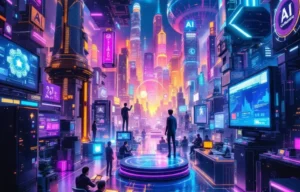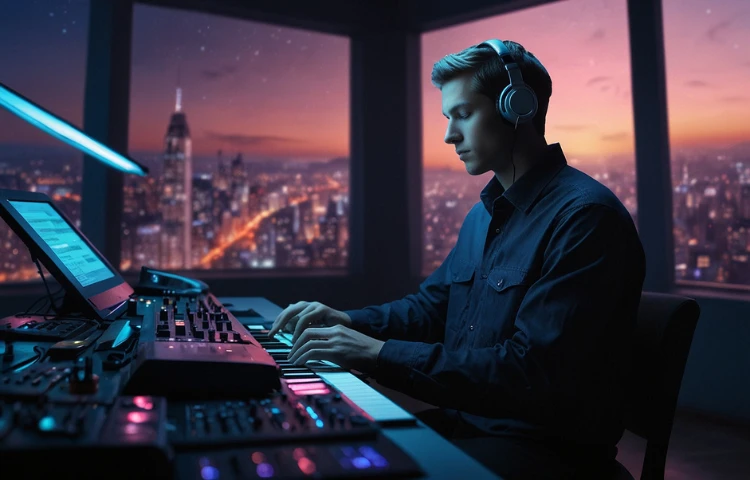

Prefer to listen instead? Here’s the podcast version of this article.
Artificial intelligence is transforming industries across the board, and the music sector is no exception. Among the most exciting innovations is the emergence of AI agents—autonomous programs capable of crafting, remixing, and producing music with minimal human intervention.
These AI-powered tools are democratizing music creation, opening doors for both seasoned musicians and casual creators to explore their artistic potential. This blog explores how AI agents are reshaping the music industry and addresses critical aspects of this phenomenon.
AI agents are fundamentally changing how music is created and produced. Unlike traditional tools, which often require human expertise to navigate complex audio software, AI agents simplify the process. For example, platforms like [Amper Music] and [Soundraw] enable users to create custom tracks by selecting parameters such as mood, tempo, and genre.
In 2023, comedian Will Hatcher’s creation, “BBL Drizzy,” showcased AI’s ability to produce compelling music. This track, generated with minimal input, underscored the potential of AI agents to produce songs that resonate with listeners. It also demonstrated the rising influence of AI in hip-hop, where producers like Metro Boomin have embraced AI-generated samples, as discussed in this detailed WIRED article.
Rather than replacing musicians, AI agents are becoming collaborative tools that enhance creativity. Platforms like [OpenAI’s MuseNet] allow artists to experiment with different styles and genres by blending elements of various musical traditions.
A case in point is AI’s ability to generate chord progressions and melodies that complement an artist’s existing work. This fusion of human creativity and machine precision enables producers to explore sounds they might not have discovered otherwise. For a deep dive into AI’s collaborative potential, visit Forbes’ analysis.
Historically, creating music required expensive equipment and specialized skills. AI agents are leveling the playing field by offering tools that are both affordable and user-friendly.
Platforms like [AIVA] (Artificial Intelligence Virtual Artist) empower individuals with little to no formal training to compose symphonies, jingles, and soundtracks. Similarly, mobile apps like [Endlesss] enable collaborative, AI-assisted jam sessions, making music creation more accessible than ever.
The shift toward democratization is also explored in Quantilus’ blog on the Future of AI in Creative Industries, which emphasizes how technology is bridging gaps in access and expertise.
While the advancements are promising, they also raise questions about ownership and copyright. For instance, who owns the rights to a song created by an AI agent?
This dilemma is compounded when AI generates content that resembles existing music. High-profile lawsuits, such as those involving AI-generated covers or samples, highlight the legal gray areas. To explore the ethical implications, check out this comprehensive piece from The Verge.
As AI agents continue to evolve, their role in music creation will expand. The integration of technologies like generative adversarial networks (GANs) and neural networks promises even more sophisticated outputs.
Companies like Sony are already leveraging AI to predict musical trends and create tracks that align with consumer preferences. For more on how AI is shaping music consumption and industry dynamics, visit TechCrunch’s report.
AI agents in music creation are not just tools; they are catalysts for innovation. From democratizing access to redefining collaboration, these agents are empowering creators and transforming the industry. However, their adoption also demands careful consideration of ethical and legal challenges to ensure that technology enhances rather than undermines the art form.
WEBINAR